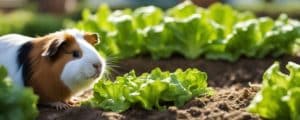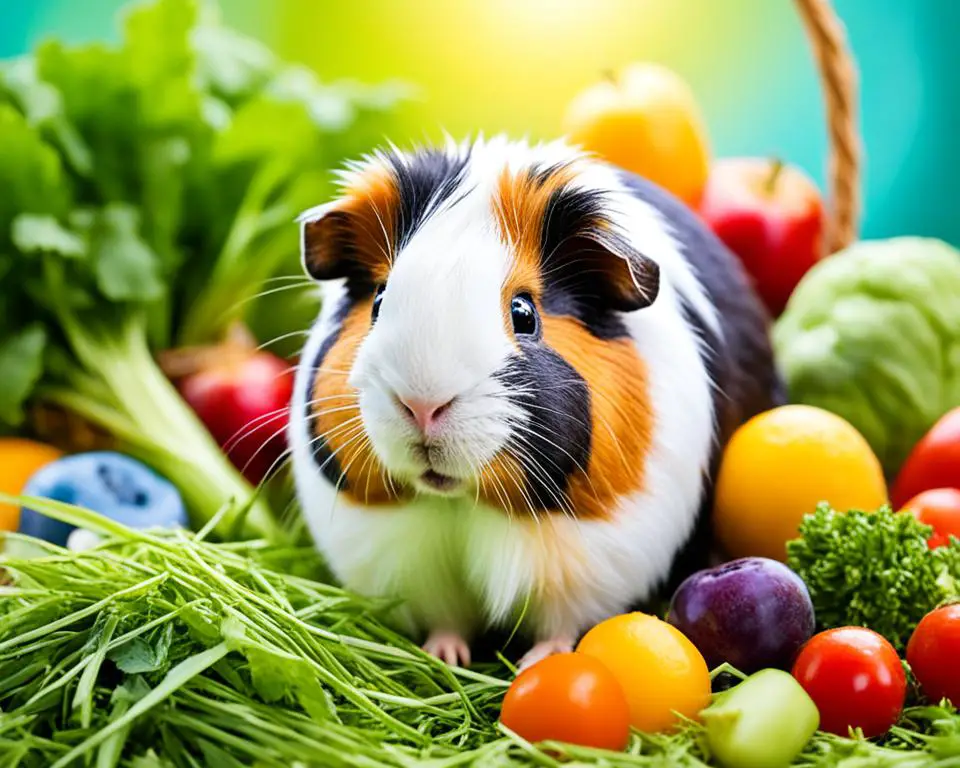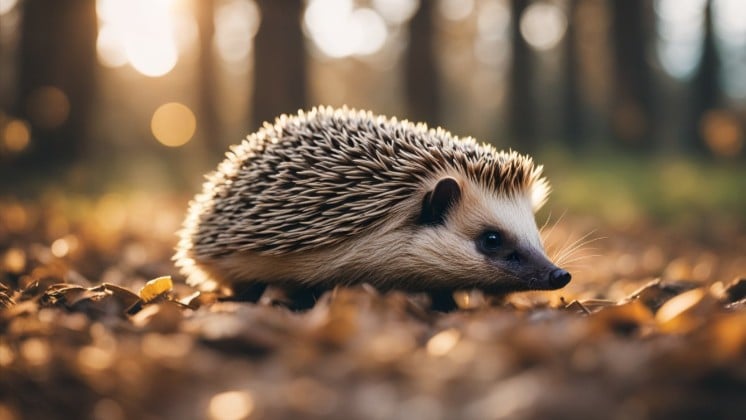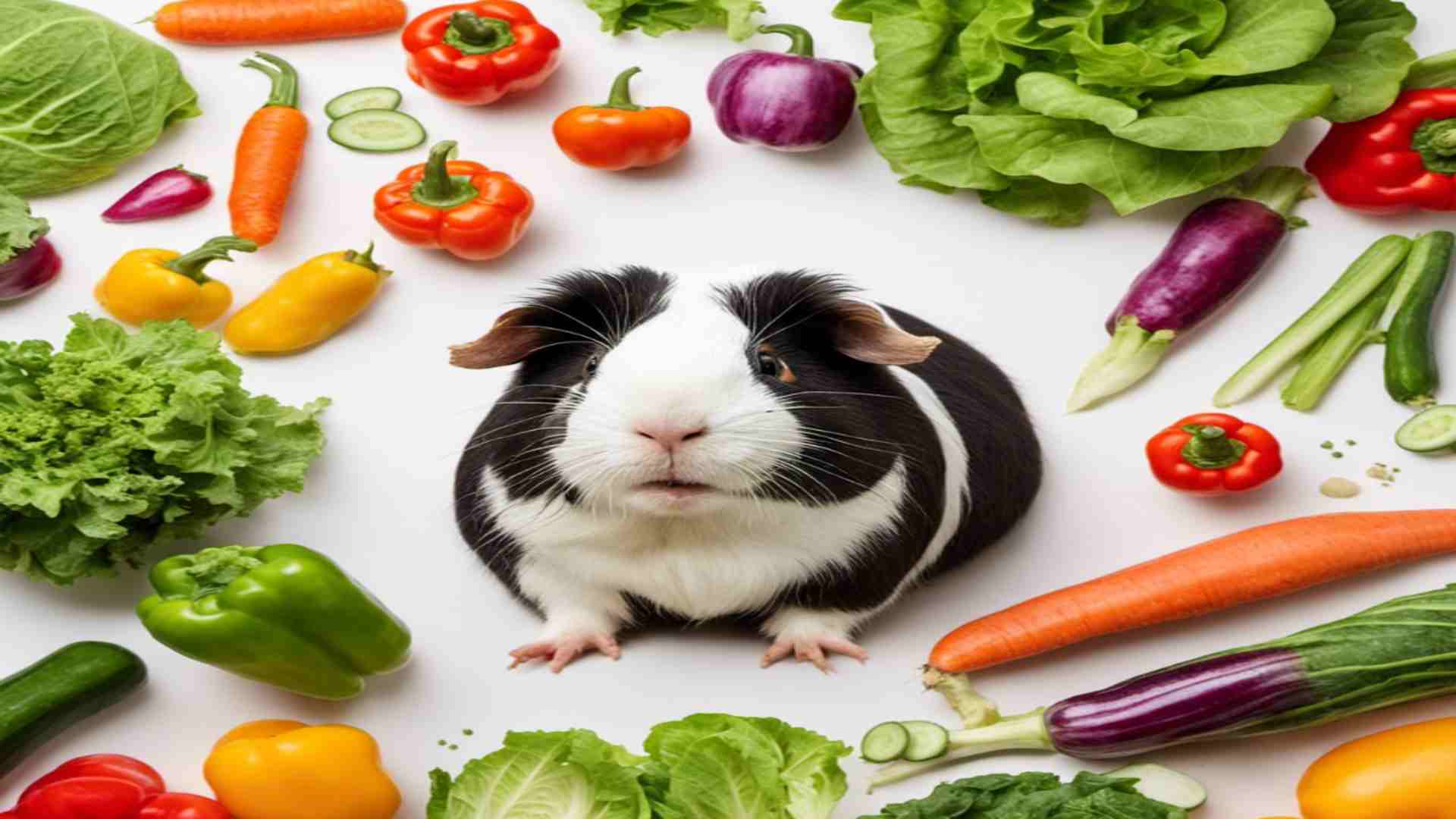Are you the proud new owner of a guinea pig, unsure of how to provide the best care and build a bond with your furry friend? Guinea pigs aren’t just adorable; they’re social creatures that need specific care and handling for optimal health.
This article is packed with essential tips on everything from creating comfortable environments to understanding dietary needs, equipping you with knowledge to become an excellent pet parent.
Read on to discover how easy it can be to make your guinea pig feel loved and at home!
Key Takeaways
- Guinea pigs need social interaction and companionship for their well – being. Playing and spending time with them helps keep them happy and healthy.
- Providing a large cage with proper bedding, toys, and a quiet environment is essential for your guinea pig’s comfort.
- A balanced diet that includes fresh hay, vegetables, and limited pellets is crucial to ensure your guinea pig gets the necessary nutrients.
- Gentle handling techniques and regular grooming practices help maintain your guinea pig’s health while building trust and bonding with them.
Guinea Pigs’ Needs Overview
Guinea pigs require social interaction, large cages, vitamin C, and have a quiet and easy to tame nature.
Importance of social interaction

Guinea pigs need friends. They like to play and talk. When they are with others, they feel safe and calm. This helps them stay healthy and happy. Playtime with their owners is fun for them too! It stops them from getting bored.
Also, it gives us a chance to see if they’re not feeling well by knowing their normal behavior.
Large cage requirements
Guinea pigs need a big cage to be happy and healthy. Try these tips for setting it up:
- Every guinea pig needs at least 7.5 square feet of space.
- More guinea pigs? Add 1.5 square feet of space for each one.
- Use a cage with a solid base to keep your pet safe.
- Line the cage with hay, paper, or wood chips for comfort.
- Change out the bedding often to keep the space clean.
- Put toys and huts in the cage so your guinea pig can play and hide.
- Keep the cage in a quiet place away from household hazards.
- Pick an indoor hutch or enclosure that won’t let your pet escape.
Quiet and easy to tame nature
Guinea pigs are calm pets. They have a quiet nature that makes them easy to tame. Guinea pigs do not bite or scratch, which is great for kids. But each guinea pig has its own way of showing love.
Some might enjoy a gentle petting, others may prefer just sitting next to you quietly. It’s important to give them time and space because trust takes time to build up! Always be kind and patient with your guinea pig so it gets comfortable around you.
Avoid loud noises and other pets as they can scare your guinea pig away.
Need for vitamin C
Guinea pigs must have vitamin C. They can’t make this on their own. Their bodies need it for good health but can only keep it for a short time. The right diet will give them enough of this key nutrient.
Foods rich in fiber and full of vitamin C are best for guinea pigs to eat.
Preparing for pet guinea pig ownership

Before bringing a guinea pig home, it is important to consider the long-term commitment and find them from shelters or rescue groups. Find out more about preparing for pet guinea pig ownership here.
Long-term commitment considerations
Owning a pet guinea pig is a long-term commitment that requires dedication and responsibility. Guinea pigs have an average lifespan of 5-7 years, so it’s important to consider the time and effort you can devote to their care over this period.
They require daily feeding, cleaning, and social interaction. Additionally, they need regular veterinary check-ups and may require medical treatment throughout their lives. Before bringing home a pet guinea pig, make sure you are prepared for the long-term commitment involved in providing them with love, care, and attention.
Sourcing from Shelters
One of the best ways to acquire a pet guinea pig is by sourcing them from shelters. This is a responsible and ethical choice as it helps reduce the number of homeless guinea pigs while ensuring that they receive proper veterinary care.
Shelters can also provide guidance and support for new owners, matching them with the right guinea pig based on their preferences and lifestyle. Adopting from a shelter not only gives these animals a second chance at finding a loving home but also ensures that you are well-prepared to meet their specific needs.
Determining the Right Number of Guinea Pigs
Guinea pigs are social animals, and it is recommended to have at least two guinea pigs for companionship. The minimum cage size for 1-2 guinea pigs is 7.5 square feet, with an additional 1.5 square feet for each additional guinea pig.
So, consider adopting more than one guinea pig to provide them with the social interaction they need and make sure their cage is spacious enough for their comfort.
Creating a Comforting Environment for Your Guinea Pig
Ensure that you set up an appropriate housing setup for your guinea pig, providing them with a safe and comfortable space to live.
Appropriate Housing Setup
To provide an appropriate housing setup for your guinea pig, follow these steps:
- Choose a cage that is spacious enough for your guinea pig to move around comfortably.
- Make sure the cage has a solid base to prevent any injuries to your guinea pig’s feet.
- Add bedding materials such as hay, paper, towels, or woodchips to make the cage cozy.
- Place toys and huts in the cage to provide entertainment and comfort.
- Keep the cage in a quiet and calm area of your home to help your guinea pig feel safe.
- Regularly clean and change the bedding in the cage to maintain cleanliness.
- Provide fresh water daily in a water bottle attached to the side of the cage.
- Ensure that the cage is secure and protected from other household pets or potential hazards.
Safety Against Household Hazards
To keep your pet guinea pig safe, make sure to:
- Remove any toxic plants or substances from their environment.
- Keep electrical cords out of reach to prevent chewing and electrocution.
- Store cleaning products, medications, and chemicals securely.
- Keep small objects that could be swallowed away from their enclosure.
- Avoid using wire mesh floors in their cage to prevent foot injuries.
Feeding Your Guinea Pig
Provide a healthy diet for your guinea pig by offering grass hay and a high-fiber diet.
Providing a Healthy Diet
Guinea pigs need a healthy diet to stay strong and happy. Here are some important tips for feeding them well:
- Offer fresh hay every day. Hay is an important part of their diet and helps keep their digestive system working properly.
- Give them fresh vegetables, like leafy greens and bell peppers. These provide important vitamins and minerals.
- Provide a small amount of pellets designed specifically for guinea pigs. Too many pellets can lead to obesity, so portion control is key.
- Avoid giving them sugary or fatty foods, like chocolate or potato chips. These can cause health problems like obesity and dental issues.
- Make sure they always have access to clean, fresh water. Change it daily to keep it fresh.
Using Food for Bonding
Feeding your guinea pig can be a great way to build a bond and trust with them. By consistently providing their meals and snacks, you can help them associate you with food and the positive experience of eating.
Hand feeding treats to your guinea pig is especially effective in developing a sense of trust and comfort. You can offer healthy snacks like grass, vegetables, and some fruits in moderation as a way to reward and connect with your furry friend.
Remember that creating a comforting environment is crucial for bonding with your guinea pig, and using food as part of this process can make it even more enjoyable for both of you.
Properly Handling Your Guinea Pig
Handle your guinea pig gently and regularly groom them to keep their coat clean and healthy.
Gentle Handling Techniques
To handle guinea pigs gently, follow these techniques:
- Support their body with both hands.
- Approach them slowly and quietly.
- Let them sniff your hand before touching them.
- Use a firm grip, but don’t squeeze too hard.
- Avoid picking them up by their legs or pulling on their fur.
- Always handle from the side, not from above.
Regular Grooming Practices
Regular grooming is important for keeping your guinea pig healthy and happy. Here are some essential grooming practices to follow:
- Brush their fur gently to remove dirt, tangles, and loose hair.
- Use a soft brush designed for small animals to avoid hurting their sensitive skin.
- Trim their nails regularly to prevent overgrowth and discomfort.
- Be careful not to cut the quick, which is the sensitive part of the nail.
- Check their ears regularly for any signs of infection or discharge.
- If necessary, clean their ears gently with a damp cloth or cotton ball.
- Watch out for any abnormal odors coming from your guinea pig’s ears.
- Keep an eye on their teeth and make sure they have proper chewing toys to prevent dental problems.
Health Care for Your Guinea Pig
Provide preventative measures such as regular check-ups, vaccinations, and a balanced diet to ensure your guinea pig’s overall health and well-being.
Preventative Measures
To keep your guinea pig healthy and happy, it’s important to take preventative measures. Here are some ways to do that:
- Provide a clean and safe living environment for your guinea pig.
- Regularly clean their cage and remove any waste or soiled bedding.
- Keep their enclosure away from drafts, direct sunlight, and extreme temperatures.
- Ensure that their cage is escape – proof and free from potential hazards such as wires or toxic plants.
- Give them plenty of fresh, clean water every day to prevent dehydration.
- Feed them a balanced diet rich in hay, vegetables, and a small amount of pellets to meet their nutritional needs.
- Monitor their weight regularly to prevent obesity or malnourishment.
- Schedule regular check – ups with an exotic animal veterinarian to catch any health issues early on.
- Protect them from parasites by maintaining good hygiene and using appropriate preventative treatments recommended by your vet.
- Avoid exposing your guinea pig to other sick animals or environments that can spread diseases.
Parasite Control
Parasite control is important for keeping your guinea pig healthy. Here are some ways to prevent parasites:
- Regularly clean the cage to remove any potential parasite eggs or larvae.
- Use bedding materials that are resistant to parasites, such as kiln-dried pine shavings or paper-based products.
- Keep your guinea pig’s living area clean and dry, as parasites thrive in damp environments.
- Avoid contact with wild animals, as they may carry parasites that can be transmitted to your guinea pig.
- Check your guinea pig’s fur regularly for signs of fleas, ticks, or mites. If you notice any, consult with a veterinarian for appropriate treatment options.
- Maintain proper grooming practices, including regular brushing and nail trims, to help prevent infestations.
- Ensure your guinea pig receives a balanced diet with adequate nutrition and vitamin C, as a healthy immune system can help prevent parasite infections.
Reproductive Control
Reproductive control is an important aspect of caring for guinea pigs. It involves spaying or neutering them to prevent breeding. This helps maintain the health and well-being of the guinea pigs by preventing unwanted litters and certain reproductive diseases.
Keeping male and female guinea pigs separate or desexing them can effectively manage their reproductive cycles. Regular visits to the veterinarian are necessary to monitor the reproductive health of your guinea pigs and ensure they remain happy and healthy.
Keeping Your Guinea Pig Entertained
Providing stimulating toys and activities is essential for keeping your guinea pig entertained.
Stimulating Toys and Activities
Stimulating toys and activities are important for keeping guinea pigs entertained. Here are some ideas:
- Provide tunnels and hideouts for your guinea pig to explore.
- Offer chew toys made from safe materials like untreated wood or hard plastic.
- Use puzzle feeders to challenge your guinea pig’s problem – solving skills.
- Introduce interactive toys that make noise or move, such as a rolling ball or hanging mobile.
- Create an obstacle course using cardboard boxes and tubes for your guinea pig to navigate through.
- Offer different textures, like fleece blankets or grass mats, for your guinea pig to walk on and explore.
- Rotate toys regularly to keep things interesting and prevent boredom.
Importance of Mental Stimulation
Mental stimulation is very important for guinea pigs. It helps keep them happy and healthy. Guinea pigs are smart animals that like solving problems and doing interactive activities.
Giving them toys like tunnels, chew toys, and puzzle feeders can provide mental stimulation. It’s also a good idea to rotate their toys and introduce new ones regularly to keep them interested and prevent boredom.
Summary
Before we move on to the conclusion, we’ve summarized this article into a short list of key points for you to remember:
- The article discusses the increasing popularity of plant-based diets and the reasons why people are choosing to adopt them.
- It explores the health benefits of plant-based diets, including lower risks of heart disease, cancer, and other chronic illnesses.
- The article also discusses the environmental benefits of plant-based diets, including reduced greenhouse gas emissions and land use.
- Finally, the article offers tips for people who are interested in transitioning to a plant-based diet, such as starting slowly, experimenting with new recipes, and seeking support from others.
Conclusion
In conclusion, petting guinea pigs requires understanding their needs and creating a comfortable environment for them. By providing the right housing, feeding them a healthy diet, handling them gently, and ensuring their health care needs are met, you can have a happy and bonded relationship with your guinea pig.
Remember to give them time to adjust and show them love through consistent interaction. With patience and care, you can enjoy the affectionate companionship of these adorable pets.
FAQs
1. What is the best way to handle guinea pigs?
The RSPCA advises careful handling of guinea pigs given their communal nature, always being gentle and mindful of showing signs of illness.
2. Why should I groom my guinea pig?
Daily grooming and brushing are needed for some breeds of guinea pigs, it maintains a clean coat and allows you to monitor any health issues.
3. How do I care for my Guinea Pigs’ diet?
A high-fibre diet with muesli mixes forms part of general care practices recommended by animal welfare organizations like the RSPCA for healthy guinea pigs.
4. Do Guinea Pigs need special enclosures?
Both indoor hutches and outdoor enclosures fit well as home spaces; just ensure they meet standards set by animal welfare laws for comfort and safety.
5. Can Guinea Pigs stay at animal shelters?
Sure! Places like RSPCA shelters offer temporary homes where professional caregivers apply preventative healthcare techniques which include regular checks for common conditions & environmental enrichment activities.
6. Are there different ways to support Animal Welfare organizations?
Donating online, volunteering time or using payroll giving are great ways to show support towards important animal welfare campaigns dedicated to improving companion animals life quality.
Want to learn more about bearded dragons?
Ready to boost your knowledge to the next level? If so, check out the articles below:






